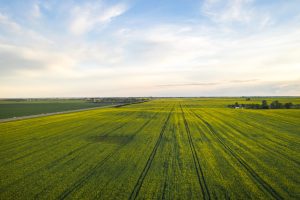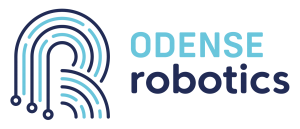FREYA: FutuRE robotic Yield monitoring for Agriculture
The FREYA project will explore technical challenges for autonomous mobile robots in agriculture and demonstrate how mobile robots can be utilized for data collection in agriculture to provide farmers with the data required for compiling a detailed digital model of the farmland, reflecting local variation. Utilising such models will be particularly relevant for diversifying agriculture, allowing for improved biodiversity.

The FREYA project
The FREYA project will delve into the technical hurdles faced by autonomous mobile robots in agriculture. It aims to showcase how these robots can play a pivotal role in collecting agricultural data, which is essential for constructing an intricate digital model of the farmland that captures its local variations. The utilisation of these models will prove especially valuable in promoting agricultural diversification and fostering improved biodiversity.
Background
The FREYA (FutuRE robotic Yield monitoring for Agriculture) project aims to investigate how robots can support farmers by providing detailed information on crop growth, health, and quality, particularly for high-value crops like vegetables. This data allows for more precise and targeted use of resources such as fertiliser, mechanical cleaning, and, in the short term, pesticides. Traditional methods are too expensive for acquiring such data. While drones have been used for tasks like yield prediction and spot spraying, they are not suitable when the sensor cannot be transported by a UAV or when their airflow disrupts measurements.
In the FREYA project, we will explore the use of mobile robots for autonomous data collection in agriculture. This includes sensor data relevant to farmers as well as data relevant for ensuring safe and reliable robot behavior, accounting for seasonal variations, weather conditions, crop types, obstacles, and more. By integrating robots with crop management systems, we aim to enable the development of sustainable farming strategies that go beyond current high-volume production processes.
Purpose
The agricultural industry, while having embraced certain technological advancements, is still in need of more accessible and efficient solutions for precision farming. The overall purpose of the FREYA project is fourfold:
1. To enhance the functionalities and autonomous capabilities of mobile robots, thereby eliminating some of the technological barriers that limit the widespread adoption of robotics in precision agriculture.
2. Through partner co-creation of technology, the application demonstrations will lead to viable demonstrations that will remove some of the market barriers and create an interest in further partners’ activities and products.
3. To ensure that the project's outcomes are widely disseminated and reach a broad audience, including the public, the agricultural sector, and other pertinent stakeholders. This is aimed at creating awareness and understanding of the potential benefits of integrating robotics into agricultural practices.
4. To lay the groundwork for future collaborations among (some of) the project partners, possibly leading to larger funded initiatives such as InnovationsFond Grand Solutions or EuroStars projects.
(1) will combine current robots with appropriate sensory and interactive capabilities leading to more suitable robots specified for agricultural applications.
(2) and (3) aim to generate industry impact in the short to mid-term, ideally leading to the foundation for new products, strategic directions, and collaborative partnerships.
(4) signifies a long-term commitment to further mature and target specific markets, applications, and technologies over a period of 2-5 years.
Expected results
The outcome of the FREYA project will consist of technology demonstrations allowing partners to gain important insights in and experience with key technologies for robotic systems in the agriculture domain and the specific needs of end users. This is expected to support and focus future joint research activities in this domain. Furthermore, FREYA will demonstrate available technologies and facilitate knowledge exchange with key actors in this domain through a public workshop.
Project participants
The University of Southern Denmark (SDU)
Aalborg University (AAU)
Danish Technological Institute (DTI)
Odense Robotics
Funding
The Ministry of Higher Education and Science has financed this project with 650.000 DKK.
Start and finish
The project runs from August 2023 to July 2024.
Contact
Do you want to get involved or hear more? Reach out to Ole Georg Andersen.
Contact us to learn more
Curious to find out more about the project and how you can get involved? Get in touch with Ole.


Knowledge-based innovation and the Fehmarn Belt project









